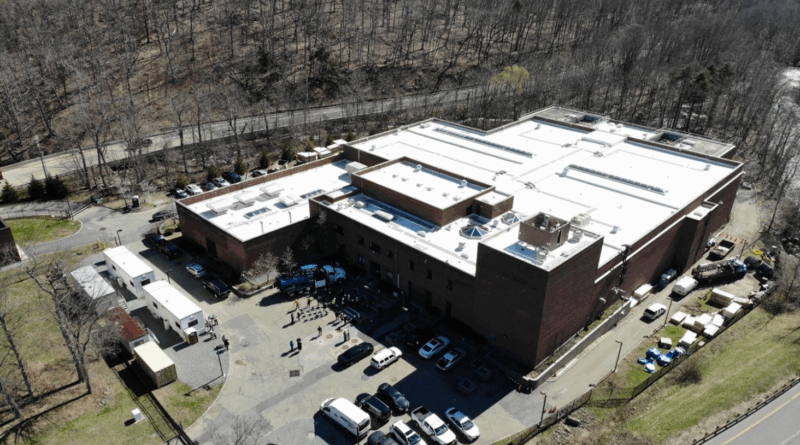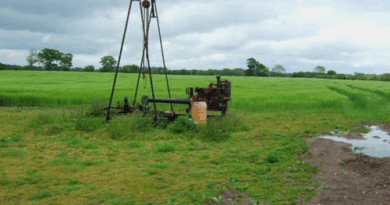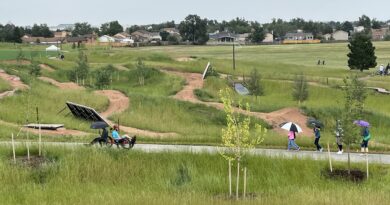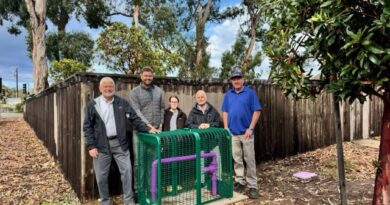Newark’s Pequannock Water Treatment Plant Upgrades
Newark’s Pequannock Water Treatment Plant (PWTP) now has the capacity to treat 60 million gallons of water per day after undergoing its largest upgrade since first constructed in 1989.
The $20.5 million project, which includes filter upgrades, a filter air scouring system and a new Supervisory Control and Data Acquisition (SCADA) system, is the latest investment made by Mayor Ras Baraka’s administration to reinforce Newark’s water system for future generations. “These improvements optimize the way we deliver clean, reliable drinking water to Newark residents and our bulk customers,” said Newark Water and Sewer Utility Director Kareem Adeem. “The upgrades improve the efficiency of the treatment process and modernize our facilities with the latest state-of-the-art technology. Our children and our grandchildren will benefit tremendously from this project.”
The inception of these upgrades were fueled by Newark’s growing population and the city’s strengthening relationships as a partial water purveyor for surrounding cities, such as Belleville and Bloomfield.
“The demand for Newark’s water is increasing,” said Director Adeem, who has led the city’s Water and Sewer Utility since 2018. “As a response, we’ve completed improvements to expand our daily production capacity, putting us in a better position to supply water to Newark and beyond.”
When the Long Term 1 Enhanced Surface Water Treatment Rule (LT1ESWTR) was enacted and drinking water turbidity thresholds were reduced, Newark engineers foresaw the need to quickly adapt to the fast-evolving regulatory landscape for drinking water.
“The SWTR is a landmark regulation that upholds a high standard of water quality to protect public health,” said Newark Chief Engineer Mohammad Inti Athar. “It is our obligation to more than satisfy these regulations. As a response, these upgrades actualize our mission of delivering the safest drinking water to our residents.”
Among these upgrades are three major highlights. First, all anthracite filter media was swapped with granular activated carbon (GAC) media to filter out impurities like per-and polyfluoroalkyl (PFAS) substances and optimize water quality. In addition, clay-based underdrain systems were replaced with stainless steel underdrains to ensure efficient filtration and filter backwashing.
“It is paramount that we keep our filters in tip-top shape,” said Mr. Athar. “In a few years, we plan to install dissolved air flotation (DAF) technology, which uses air bubbles to remove impurities before water even enters the treatment plant for filtration.”
Another major upgrade is the installation of an air-scouring system in the filter beds, which utilizes compressed air to burst out debris and particles from the filter media before the backwash begins.
“Air scour is the latest technology we’ve implemented to give the filters a deeper clean,” Mr. Athar said. “The cleaner the filters, the better the filtration process and the less we have to perform backwashes.”
Lastly, the plant has transitioned to a new Allen-Bradley SCADA system, promoting greater operational control of the plant using automated solutions for chemical dosaging and continuous remote monitoring of water quality. Designed by Kleinfelder and constructed by Spectraserv, other upgrades include the replacement of over 60 new valves and nine backwash and sludge pumps, further equipping the plant with new physical assets to extend its lifecycle.
“As someone with over 40 years of experience in the industry, Newark is leaps ahead in its water infrastructure upgrades,” said Jerry Notte, licensed operator for the Newark PWTP. “Newark is proactive in its approach to these improvements and ultimately it is the residents and future residents of the city who will reap the rewards of these investments.”
All together, the upgrades have boosted the plant’s production capacity, placing Newark in a stronger position to become one of Northern New Jersey’s vital water purveyors. The upgrades were supported by the New Jersey Infrastructure Bank (NJIB), saving ratepayers an estimated $7,555,465. However, the work to improve the Newark PWTP is not over. In the fall of 2025, Newark will install two additional filters, which will provide system redundancy and further increase the plant’s production capacity. In an emergency, the added filters could push the plant to produce in excess of 70 million gallons per day.
“There are still more upgrades to make,” Director Adeem said. “Newark’s most valuable asset is its water, and the infrastructure that carries it and treats it is just as important. We have a number of projects down the pipeline that will reinforce all areas of our water system.”
From treatment plant upgrades, green infrastructure sites, to flood mitigation projects, the Baraka administration has invested nearly $400 million in Newark’s water and sewer infrastructure. This does not include Newark’s landmark Lead Service Line Replacement program, which cost an additional $195 million in bonds.
“We are grateful to the Baraka administration and the NJ Infrastructure Bank for making these large-scale water infrastructure projects possible,” Mr. Athar said, who aided in overseeing the very projects that were funded by these entities since 2019.
From the Charlotteburg Reservoir to a bathroom sink on Market Street, Newark’s water travels over 30 miles south to thousands of homes and businesses. Upgrades like these set up Newark’s water system to last another 100 years. Learn more about water and sewer projects in the City of Newark at water.newarknj.gov.
This article is written by Julissa Coplin, Public Information Officer at the Department of Water & Sewer Utilities in Newark, New Jersey. It also appears in our July/August Issue.




